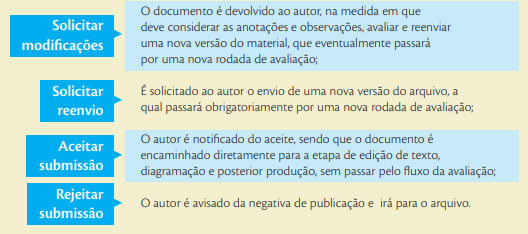Sobre a Revista
Foco e Escopo
Hoplos é a revista discente do Programa de Pós-Graduação em Estudos Estratégicos da Defesa e da Segurança (PPGEST) vinculada ao Instituto de Estudos Estratégicos (INEST) da Universidade Federal Fluminense (UFF). Com periodicidade semestral, ela se constitui em um espaço plural de análise e discussão sobre temas que permeiam os Estudos Estratégicos, as Relações Internacionais e a Ciência Política. Recebendo colaborações em sistema de fluxo contínuo, a revista publica artigos acadêmicos e resenhas de obras de edição recente e tem como principal objetivo a divulgação da produção de pós-graduandos/as e pesquisadores/as dessas áreas. Os textos recebidos são analisados em sistema de blind review e publicados mediante recomendação do Conselho Editorial.
Processo de Avaliação da Revista
O Processo de avaliação da Revista Hoplos segue um fluxo que passa pelas seguintes etapas: Avaliação das normas pelo Editor-chefe e Avaliação dos trabalhos pelos pares.
O Editor-chefe após submissão do artigo no sistema, recebe e avalia os arquivos se possuem os seguintes critérios: Identificação, escopo, originalidade, titulação e Palavras.
Na Identificação, espera-se que o autor omita sua identidade nos arquivos enviados, e também, omita qualquer forma de identificação no próprio arquivo;
No escopo, espera-se que o arquivo esteja alinhado com a revista em suas áreas de atuação que são os Estudos Estratégicos e as Relações Internacionais;
Na originalidade, espera-se que o artigo possua estudos inéditos e originais dentro da área da revista;
Na Titulação, espera-se que os autores garantam o minímo de titulação pedido no periódico, isto é, graduado;
Nas Palavras, espera-se que o artigo cumpra os requisitos minímos e máximos de palavras entre 5.000 a 7.000 palavras, excluindo da contagem das referências bibliográficas.
Após se certificar que os requisitos acima foram cumpridos, o Editor-Chefe designa um Editor-Executivo para que este escolham dois avaliadores entre os pares que estejam alinhados com as áreas de interesse dos trabalhos.
Processo de Avaliação pelos Pares
O processo de avaliação pelos pares é realizado por dois avaliadores externos ao Corpo Editorial da revista.
Para assegurar a integridade da avaliação por pares, duplo cega, para submissões à revista, deve-se tomar todos os cuidados possíveis para não revelar a identidade de autores e avaliadores entre os mesmos durante o processo. Isto exige que autores, editores e avaliadores (passíveis de enviar documentos para o sistema, como parte do processo de avaliação) tomem algumas precauções com o texto e as propriedades do documento:
- Os autores do documento excluíram do texto: nomes, substituindo com "Autor" e o ano em referências e notas de rodapé, em vez de nomes de autores, título do artigo, etc.
- Em documentos do Microsoft Office, a identificação do autor deve ser removida das propriedades do documento (no menu Arquivo > Propriedades), iniciando em Arquivo, no menu principal, e clicando na sequência: Aqruivo > Salvar como... > Ferramentas (ou Opções no Mac) > Opções de segurança... > Remover informações pessoais do arquivo ao salvar > OK > Salvar.
- Em PDFs, os nomes dos autores também devem ser removidos das Propriedades do Documento, em Arquivo no menu principal do Adobe Acrobat.
A revista utiliza o programa Copy Spider para realizar as verificações de existência de plágio nos textos avaliados pela Hoplos.
As avaliações poderão ter o seguintes pareceres após avaliação dos pares:

Após resultado de "Aceitar Submissão", os documentos são encaminhados para o processo de edição de texto. O Editor-Executivo solicitam, então, um Editor-Texto. Nesse processo, o arquivo passa por revisão gramatical e das normas da ABNT, por nossos editores de revisão. Após o cumprimento das exigências pelos autores, o arquivo avança para a editoração de Layout, quando é adequado ao design e formato da nova edição do periódico. O último fluxo editorial é o agendamento do arquivo, e sua posterior publicação.
Periodicidade
Bianual
Política de Acesso Livre
Esta revista oferece acesso livre imediato ao seu conteúdo, seguindo o princípio de que disponibilizar gratuitamente o conhecimento científico ao público proporciona maior democratização mundial do conhecimento.
Ressaltamos que a Revista Hoplos não efetua cobrança de taxas para processamento e submissão de artigos.
Todo o processo de submissão, avaliação e editoração é gratuito.
Histórico do periódico
“Hoplos” é a revista discente do Programa de Pós-Graduação em Estudos Estratégicos da Defesa e da Segurança (PPGEST), da Universidade Federal Fluminense (UFF). Com periodicidade semestral, ela se constitui em um espaço plural de análise e discussão sobre temas que permeiam os Estudos Estratégicos, as Relações Internacionais e a Ciência Política. Recebendo colaborações em sistema de fluxo contínuo, a revista publica artigos acadêmicos e resenhas de obras de edição recente e tem como principal objetivo a divulgação da produção de pós-graduandos/as e pesquisadores/as dessas áreas. Os textos recebidos são analisados em sistema de blind review e publicados mediante recomendação do Conselho Editorial.





